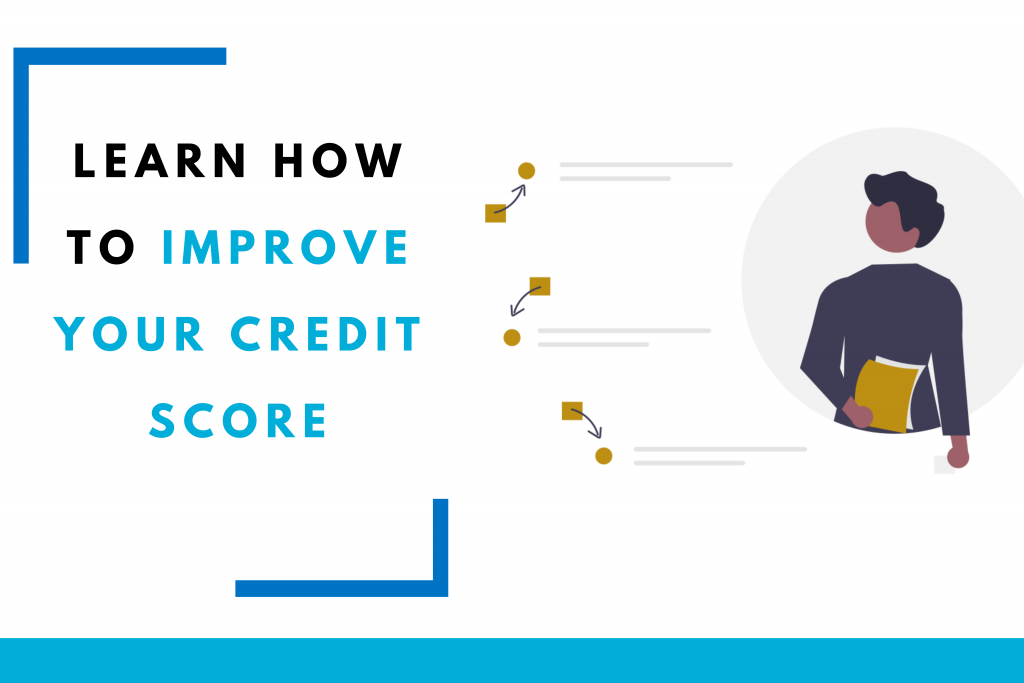There are many different types of mortgage lenders. Some are big banks, some are small banks, and others are credit unions.
So which one is right for you? The answer to that question varies depending on your individual needs. This article will discuss the main types of mortgage lenders and what each offers.
Here are some tips to guide your search if you’re looking for a lending institution!
What Is A Lender?
A lender is a bank or other financial institution that provides money to borrowers. Lenders can be individuals, banks, credit unions, or financial institutions.
A mortgage is a loan that helps finance the purchase of a home. It’s important to note that the lender provides this type of loan.
Multitudes are usually repaid over 15 to 30 years. As a result, the interest rate on a mortgage is generally lower than the interest rates on other types of loans, such as credit cards or personal loans.
What Is Mortgage Lender?
A mortgage lender is a bank or financial institution that extends loans to homebuyers. The lender can reclaim your property if you struggle to stay on top of your mortgage.
Mortgage lenders must be licensed by the state where they operate and follow strict regulations designed to protect borrowers. In addition to providing loans, mortgage lenders may offer other services such as insurance, banking, and investment products.
Choosing a mortgage lender is an important decision, and borrowers should carefully compare offers from multiple lenders before making a decision.
What Makes Mortgage Lenders Different From Mortgage Brokers?
While mortgage brokers can save borrowers time and effort, typically they can save the borrower money as the broker can leverage the relationships with each lender. There may be fees, but most times lender will pay the broker directly so the borrower doesn’t incur any additional fees.
The Main Types Of Mortgage Lenders
Now that we’ve covered the basics let’s take a closer look at the main types of mortgage lenders.
Big Banks
Big banks are financial giants that offer various banking products and services, such as mortgages, in several states. Because they are so large, big banks typically have more resources than smaller lenders.
As a result, it can benefit borrowers needing specialized services or looking for the lowest interest rates. However, big banks also tend to be less personal than smaller lenders.
As a result, borrowers may need help getting in touch with a decision-maker and feel like they are just a number. If you’re considering a big bank, comparing offers from multiple lenders is essential to ensure you get the best deal possible.
Small Banks
Small banks are local or regional banks that typically have fewer branches than big banks. As a result, they may offer a more personal touch and be a good option for borrowers who value customer service.
However, small banks may have fewer resources than their larger counterparts. It can mean they charge higher interest rates or offer fewer loan products.
If you’re in the market for a small mortgage bank, compare shops between multiple lenders to get the ideal terms.
Credit Unions
Credit unions are usually cheaper than banks because they don’t aim to make a profit; instead, credit unions return earnings to their members through lower interest rates.
Credit unions tend to be more personal than banks and may offer more flexible terms. However, they may have fewer resources than banks, which can mean they offer fewer loan products.
If you’re considering a credit union, compare offers from multiple lenders to ensure you get the best deal possible.
Mortgage Bankers
Mortgage bankers are lenders that are specialized in home loans. They may be either big or small banks, but they will have a dedicated mortgage division.
Mortgage bankers typically have more expertise in home loans than banks that offer mortgages as just one of many products. As a result, it can be beneficial for borrowers who need guidance during the loan process.
However, mortgage bankers may also charge higher interest rates or fees than other lenders.
Retail Lenders
A retail lender is a mortgage banker or bank that creates loans to sell to investors in the secondary mortgage market rather than holding onto the loan themselves.
Portfolio Lenders
A portfolio lender is an institution, typically a bank, that loans money from its funds rather than selling its own loans on the secondary market. Invests in a pool of mortgages and other types of loans instead of selling them off to third-party investors.
It lends money to borrowers using the funds it has on hand rather than securitizing the loans and selling them to investors. They set limits on how much they will loan to any one client, and the federal housing finance agency regulates these limits.
Wholesale Lenders
Wholesale lenders offer mortgages to third-party funders, such as banks, credit unions, and independent mortgage companies or professionals.
Correspondent lender
A correspondent lender is a mortgage lender that originates and funds loans in its name. Correspondent lenders typically work with smaller banks and credit unions that lack the resources to develop and support loans independently.
If you’re considering a mortgage banker, compare offers from multiple lenders to ensure you get the best deal possible.
Mortgage Lenders Who Aren’t Banks
Many mortgage lenders are not mortgage banks that can make their own loans. These include online lenders, private lenders, and government-sponsored enterprises (GSEs).
Online Lenders
Online lenders are companies that offer home loans entirely online. As a result, they typically have lower overhead costs than traditional brick-and-mortar lenders, which can mean they offer lower interest rates.
However, online lenders may have fewer resources than traditional lenders. As a result, it can make it challenging to get in touch with a decision-maker if you have questions or problems during the loan process.
If you’re considering an online lender, compare offers from multiple sources to ensure you get the best deal possible.
Private Lenders
Private lenders are individuals or companies that lend money to borrowers without going through a bank. As a result, private lenders typically charge higher interest rates than banks.
However, they may be more willing to work with borrowers with poor credit or other financial problems. Private lenders may also be able to offer more flexible terms than banks.
If you’re considering a private lender, compare offers from multiple sources to ensure you get the best deal possible.
Government-Sponsored Enterprises (GSEs)
GSEs are companies created by the government but operated by private businesses. For example, the two most common GSEs in the mortgage industry are Fannie Mae and Freddie Mac.
GSEs typically have more lenient lending standards than banks. As a result, if you have bad credit or other financial difficulties, it might be easier to get a loan.
However, GSE loans may come with higher interest rates or fees than loans from banks. If you’re considering a GSE, compare offers from multiple sources to ensure you get the best deal possible.
Direct Lenders
A direct lender is a bank or loan company that provides loans to borrowers without going through a third party. A mortgage broker is a middleman who will help you find the best mortgage from various lenders.
Hard Money Lenders
A hard money lender is an individual, not a bank or other financial institution, that makes mortgage loans to borrowers using their funds instead of borrowing from a bank. As a result, hard money lenders typically charge higher interest rates than banks.
No matter what type of mortgage lender you’re considering, compare offers from multiple sources to ensure you’re getting the best deal possible.
Tips For Choosing The Perfect Mortgage Lender
Choosing the ideal mortgage lender doesn’t have to be a headache. Use these tips to make sure you select the right one for you:
Consider your financial situation.
Before shopping for a mortgage lender, look closely at your finances. It will help you determine what type of lender is right for you.
For example, Fannie Mae or Freddie Mac–government-sponsored enterprises (GSEs)–are available to people with poor credit. If you’re self-employed or have a complex financial situation, you may need to use a mortgage broker who can help you compare offers from multiple lenders.
Compare interest rates and fees.
Interest rates and fees can vary widely from lender to lender. Compare offers from multiple lenders to ensure you get the best deal possible.
Consider the type of loan you need.
Not all lenders offer every type of loan. For example, some lenders may not offer FHA loans. When you know the loan you need, choose a lender specializing in that type of financing.
Read the fine print.
Before deciding on whether to accept a loan, be sure to read its terms and conditions. It will help you avoid any unpleasant surprises down the road.
Ask about customer service.
Having a direct line to someone who can fix any issues during your loan process is essential. Ask potential lenders about their customer service policies before agreeing to work with them.
It will ensure you can get the help you need if you encounter any problems.
Generally
There are many different types of mortgage banks and mortgage lenders out there. The type of lender you choose will depend on your financial situation and the type of loan you need.
Compare offers from multiple lenders to ensure you get the best deal possible. Also, ask about the lender’s customer service policies if you have any questions or problems during the loan process.
It will ensure you can get the help you need if you run into any problems.
FAQ’s
Is it mandatory to tell the mortgage lender about all my bank accounts?
It depends on the mortgage lender. Some lenders will require you to disclose all bank accounts and other assets, while others will only require you to disclose bank accounts in your name.
It’s best to check with the specific lender before you start the mortgage process.
What is an essential score that lenders look at?
There is no single “most important” score that lenders look at. Instead, each lender has its lending criteria, which they use to assess loan applications.
As a result, your credit score is one of the main deciding factors in whether or not you will be approved for a loan.

How can I improve my chances of being approved for a mortgage loan?
If you’re hoping to be approved for a mortgage loan, here are a few things you can do: improve your credit score, pay off debts, and save up for a down payment. The last measure is relatively standard among people who want mortgages.



